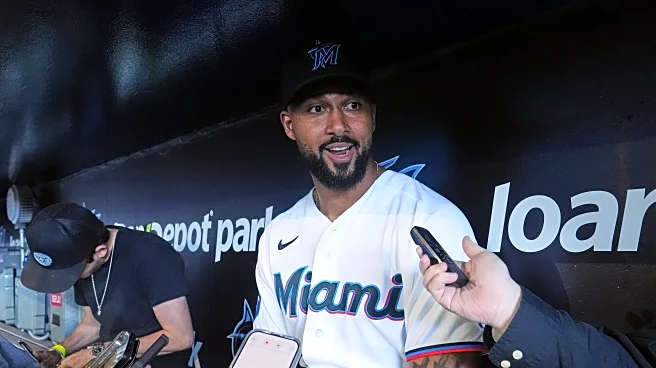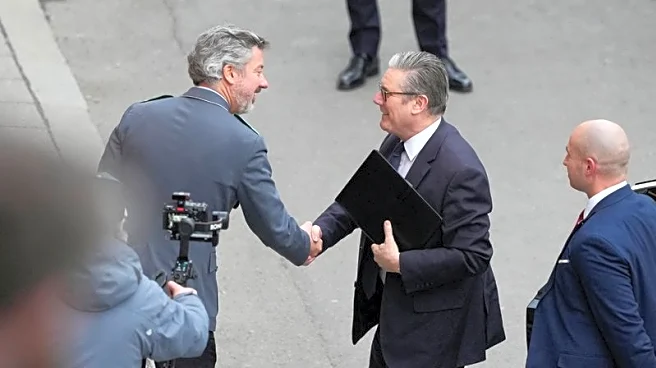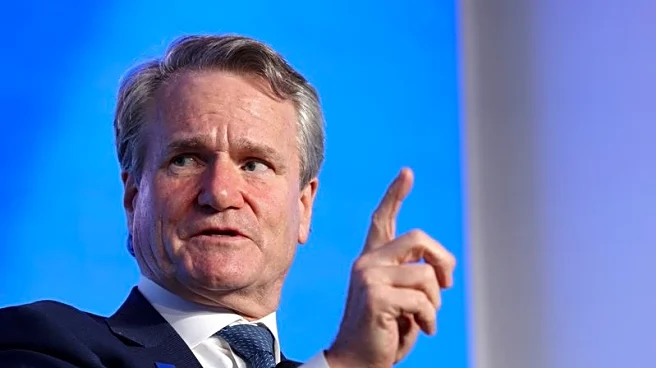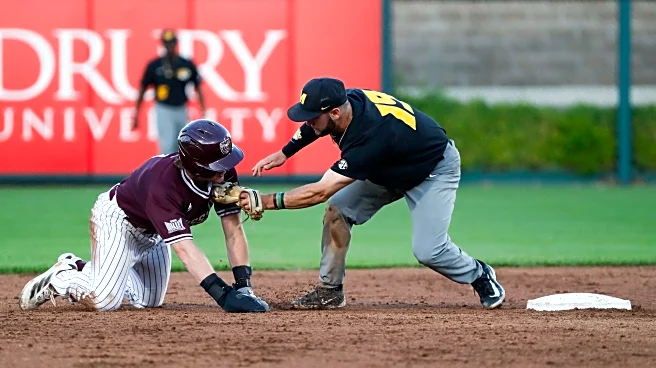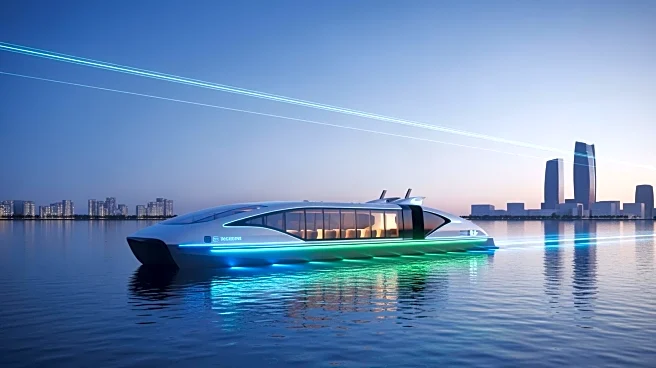What's Happening?
President Trump has suggested the deployment of National Guard troops to Chicago, citing concerns over crime rates in the city. This proposal has been met with resistance from local leaders, including Chicago Mayor Brandon Johnson and Illinois Governor JB Pritzker, who argue that such a move would be illegal and unnecessary. The suggestion follows a similar deployment in Washington, D.C., where National Guard troops have been assisting with law enforcement and community improvement efforts. The potential deployment to Chicago is part of a broader strategy by the Trump administration to address urban crime.
Why It's Important?
The potential deployment of National Guard troops to Chicago highlights ongoing tensions between federal and local authorities over crime management. Such a move could set a precedent for federal intervention in local law enforcement, raising questions about states' rights and the limits of presidential power. The proposal has sparked debate over the effectiveness and legality of using military forces for domestic law enforcement. If implemented, it could lead to increased federal oversight in other cities, impacting local governance and community relations.
What's Next?
The legal and political implications of deploying National Guard troops to Chicago are likely to be contested. Local leaders have expressed their intent to resist federal intervention, potentially leading to legal challenges. The Trump administration's actions in Washington, D.C., may serve as a model for future deployments, but the legality of such actions remains under scrutiny. The situation could escalate into a broader national debate over federal authority and urban crime policy.


